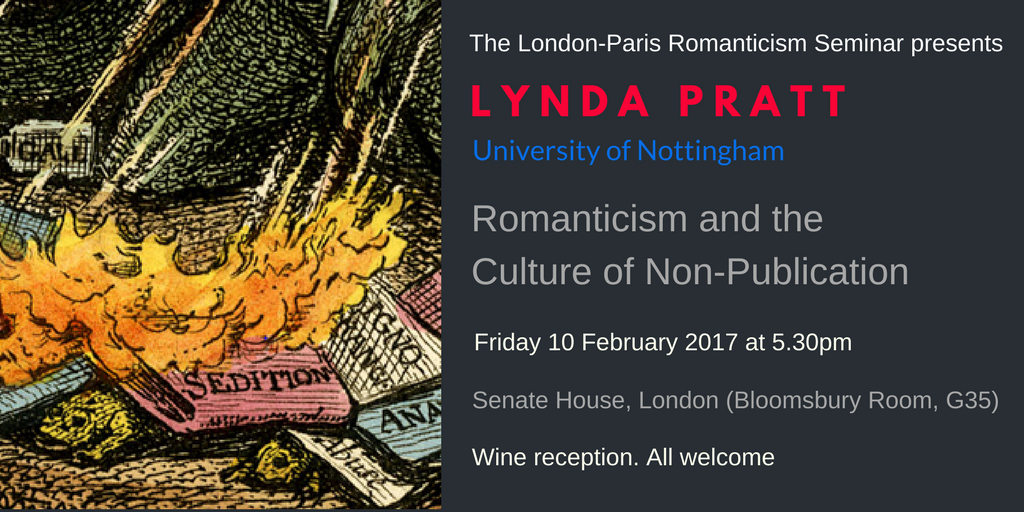
The next meeting of the London-Paris Romanticism Seminar will be held on Friday 10 February 2017 in the Bloomsbury Room (G35) in Senate House, University of London, starting at 5.30. As our guest speaker, we are delighted to welcome Lynda Pratt, Professor of Modern Literature at the University of Nottingham, who will present a paper entitled Romanticism and the Culture of Non-Publication. This will be followed by a discussion and a wine reception, to which all are invited. Admission is free.
Lynda has published widely on Robert Southey and his circle, and was general editor of multi-volume editions of Southey’s Poetical Works (Pickering and Chatto, 2004 and 2012). She is currently a General Editor of The Collected Letters of Robert Southey, for which she has also edited or co-edited 5 parts to date. Published by Romantic Circles, the Collected Letters is one of the largest digital Romanticism projects currently in progress. When complete, it will make available edited and annotated texts of c. 7500 letters by Southey, the majority published for the first time. Parts 1-5 of the edition can be found at: www.rc.umd.edu/editions/southey_letters. Part 6, co-edited by Lynda, will be published online in February 2017. She is currently working on Part 7 of the Collected Letters and on a book-length study of ‘Romanticism and the Culture of Non-Publication’.
Regarding the topic of her paper, Lynda writes:
“This talk comes out of an on-going research project on what Romantic writers wrote or projected but did not publish. Its origins lie in my work on Southey and in spotting the ‘gaps’ in the record of a writer who, even now, has a reputation for publishing everything he wrote. Scholarly understanding of the Romantic period has long been dominated by a belief in the supremacy of print. We have assumed, too readily perhaps, the centrality of writing and publishing in inscribing and defining an age. This paper takes an alternative view and traces a cultural phenomenon – non-publication – that coexisted with and ran counter to this familiar narrative but has been overlooked. It will reveal the persistence of a vital manuscript culture in an age saturated with the printed word. It will demonstrate too the importance of acts of avoiding or delaying publication, of projecting but not executing works and even, in extreme circumstances, of refusing to write. It will argue that the Romantic culture of non-publication played a powerful role in shaping both the Romantic period and our own sense of literary history.”